Business Valuation | Know What Your Business is Worth in Canada
Know What Your Business is Worth in Canada
Learn how to calculate the value of your business in Canada. This guide covers key valuation methods, factors to consider, and essential documents needed for a comprehensive assessment.
When
selling your business in the manufacturing or industrial space, determining its fair market value is crucial. This step involves a comprehensive assessment of your company's financial performance, assets, and market conditions to arrive at an accurate valuation.

Valuation Methods
There are several methods used to value a business in Canada, and the most suitable approach will depend on the specific circumstances of your company. Some of the common valuation methods include:
- Asset-Based Approach: This method values the business based on its net asset value, which is the difference between its assets and liabilities. This approach is often used for businesses with significant tangible assets, such as manufacturing companies.
- Income-Based Approach: This method values the business based on its future earning potential, using techniques such as discounted cash flow analysis. This approach is often used for businesses with stable and predictable cash flows, such as industrial service providers.
- Market-Based Approach: This method values the business by comparing it to similar businesses that have recently been sold. This approach is often used when there is a readily available market for comparable businesses.
Factors to Consider
In addition to the valuation methods, several factors can influence the value of a business, including:
- Financial Performance: Your company's revenue, profitability, and cash flow are key indicators of its value.
- Assets: The value of your company's tangible and intangible assets, such as equipment, real estate, intellectual property, and customer relationships, will be considered.
- Industry and Market Conditions: The overall economic climate, industry trends, and competitive landscape can impact your company's value.
- Management Team: The experience and expertise of your management team can influence the perceived value of your business.
- Customer Base: The size, loyalty, and retention rate of your customer base can affect your company's value.
Document Checklist for Business Valuation
| Document | Description |
|---|---|
| Financial Statements | Income statements, balance sheets, and cash flow statements for the past three to five years. |
| Tax Returns | Copies of your corporate tax returns for the same period as the financial statements. |
| Bank Statements | Bank statements for all business accounts for the past year. |
| Accounts Receivable and Payable Aging Reports | Reports showing the outstanding balances for customers and suppliers. |
| Loan Agreements and Debt Schedules | Details of any outstanding loans or debt obligations. |
| Business Plans and Forecasts | Your business plans and financial forecasts for the next few years (if available). |
| Contracts | Key contracts with customers, suppliers, and employees. |
| Inventory Reports | A detailed inventory report, including the quantity, value, and age of inventory. |
| Equipment List | A list of all business equipment, including its age, condition, and estimated value. |
| Real Estate Appraisals | A recent appraisal report if you own real estate. |
| Intellectual Property Documents | Details of any patents, trademarks, or copyrights owned by the business. |
| Organizational Chart | Shows the structure of your company and the roles and responsibilities of key personnel. |
| Employee Roster | A list of all employees, including their positions, salaries, and benefits. |
| Insurance Policies | Details of all business insurance policies. |
| Legal Documents | Relevant legal documents, such as incorporation documents, shareholder agreements, and lease agreements. |
Business Brokers and Valuation
Business brokers specializing in the manufacturing and industrial services niche have in-depth knowledge of these industries and can provide accurate and reliable valuations. They can also help you understand the factors that are most important to potential buyers and guide you in presenting your business in the best possible light. They can also assist you in gathering and organizing the necessary documents for valuation, identify any missing or incomplete information, and ensure that all documents are presented clearly and concisely.
Contact us today for a professional business valuation and to learn more about how we can help you sell your business in Canada.
Further reading:
How to sell my business in Canada
Have Questions? We've Got Answers
Get in this queue for a whale’s tail. They are a beauty, eh
We just wanted to say hi and thanks for stopping by our little corner of the web. :) “Go ahead and eat your elephant ears on the chesterfield. I’ll come sit with you as soon as I take these runners off.” But, alas, this is the Internet.
However, we think you'll love our email newsletter about building value and properly position your manufacturing company before transition/exit your business.
As a special welcome gift for subscribing, you'll also get our helping and educational guides, tips, tutorials, etc.. for free.
It's filled with the best practices for retiring serial business owners like Joseph-Armand Bombardier, John Molson, Warren Buffett and many more.
Just sign up for our emails below.



